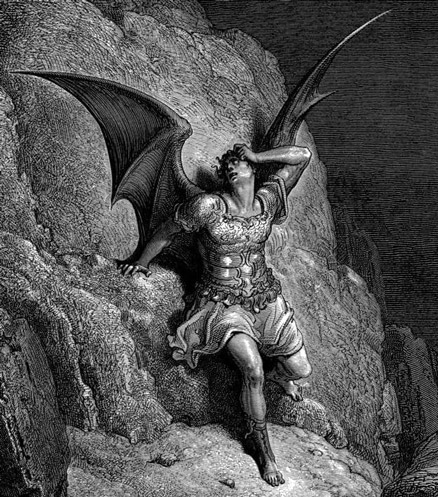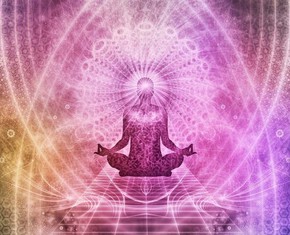The views expressed in our content reflect individual perspectives and do not represent the authoritative views of the Baha'i Faith.
“Sin” – as a child I said the word said each Sunday when the congregation at my church recited the Lord’s Prayer, but for years I did not think sin had anything to do with me. As I saw it, “sin” belonged in the trash bin of outmoded concepts.
But as I sat in class in my freshman year of university listening to my professor read aloud Satan’s soliloquy from Book 4 of Paradise Lost, I wondered. Satan’s dilemma seemed so real, and Adam and Eve’s position so heartbreaking. What was the truth about sin? What did the Garden of Eden story really mean?
In Paradise Lost, Milton takes us inside the mind of the prevaricating Satan, as he reflects on how generously and eminently reasonably God had treated him when he had lived in heaven with the other angels. Why could he not have rendered praise where it was due? Satan asks himself this question, yet admits he cannot submit His will to God’s–not now, not ever. Knowing all too well his own tragic flaws of pride and arrogance, Satan realizes he can never fit in with God’s other angels. In a moment of insight, he concludes that hell is not a place, but a psychic condition that burns within him – “I myself am hell,” Satan says.

I could understand Milton’s version of hell as an inner condition. And though he wrote Paradise Lost in the seventeenth century, the poem seemed so contemporary. In fact, as I discovered in the same class, Robert Lowell had in his 1958 poem “Skunk Hour,” invoked Satan’s phrase in Paradise Lost to describe his own inner condition – one characterized by self-doubt, existential emptiness, and madness.
A definition of hell: when the self becomes captive in its own dark mental spaces. A definition of sin: The decisions that lead to such imprisonment. Hell, then, isn’t a place, but a condition of being.
In Book 4 of Paradise Lost, the fallen Satan tempts Eve with the fruit of the Tree of the Knowledge of Good and Evil. Eve eats of the fruit and “falls” from “innocence.” Adam follows. God exiles Adam and Eve from Eden for the same sin that causes Him to banish Satan from heaven — disobedience.
When I joined the Baha’i Faith, I thought I had left this seemingly implausible story behind, along with any concern with sin and sinners, hell and evil. But now I wondered what the Baha’i Writings had to say about these subjects.
I turned to Some Answered Questions, a Baha’i book that deals with various Christian themes. Evil, Abdu’l-Baha explains there, is simply “non-existence; it is an absence not a presence.”
As for the Eden story, Abdu’l-Baha explains it in Some Answered Questions as follows:
Adam signifies the heavenly spirit of Adam, and Eve His human soul. For in some passages in the Holy Books where women are mentioned, they represent the soul of man. The tree of good and evil signifies the human world; for the spiritual and divine world is purely good and absolutely luminous, but in the human world light and darkness, good and evil, exist as opposite conditions.
The meaning of the serpent is attachment to the human world. This attachment of the spirit to the human world led the soul and spirit of Adam from the world of freedom to the world of bondage and caused Him to turn from the Kingdom of Unity to the human world. When the soul and spirit of Adam entered the human world, He came out from the paradise of freedom and fell into the world of bondage. From the height of purity and absolute goodness, He entered into the world of good and evil. – Abdu’l-Baha, Some Answered Questions, p. 123-124.
What about original sin, then? As Abdu’l-Baha makes clear, this would not make sense nor would it be fair. We come into the world pure and holy. Our sinfulness or saintliness depends on our own choices.
And what about Satan, that feisty, doomed character of Milton’s epic poem, a character who continues to be feared by fundamentalists of all stripes?
Milton did a masterful job of dethroning Satan several centuries ago, but we need not have anything to do with him. He is not real.
Whether saint or sinner, each of us has the chance to build a new Eden – the World Order revealed by Baha’u’llah some 150 years ago. As we hasten forward into the dawn of this new and most astonishing day, announced by Baha’u’llah in a verdant garden in Baghdad 150 years ago, we can leave the fallen world behind and never look back.
















Comments
Sign in or create an account
Continue with Googleor